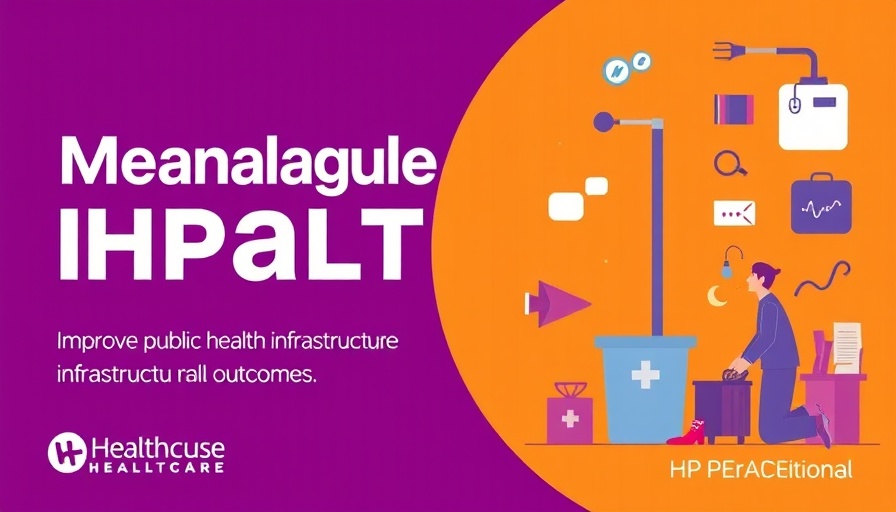
The Urgent Need for Maternal Mental Health Awareness
The story of a young woman who faced insurmountable challenges during and after her pregnancy highlights a systemic issue that has been overshadowed for too long: maternal mental health. With her tragic loss, we learn not only of the failures in the healthcare system but also the pressing need for a comprehensive understanding of mental health support for new mothers. As healthcare professionals and families come to grips with this reality, it becomes crucial to break down the stigma surrounding maternal mental health and advocate for systemic changes.
A System Overflowing with Red Flags
In the week leading to her untimely death, the young mother had contacted multiple healthcare providers, each time expressing her heightened anxiety and feelings of self-doubt. Alarmingly, her expressed need for help was met with delays and inefficiencies; the crisis behavioral health line offered a waiting period of up to six weeks for appointments, leaving her with limited options for immediate support. This situation is not an isolated incident; rather, it is a painful reminder of how systemic failures can exacerbate a vulnerable person's condition.
Understanding the Risks: Why We Must Take Maternal Mental Health Seriously
The maternal period is often romanticized, yet many women grapple with mental health challenges during this time. Mental health issues like postpartum depression and anxiety are more common than one might think, yet they often go unaddressed due to various barriers, including lack of awareness, social stigma, and insufficient resources. Recognizing this prevalence is pivotal for parents, healthcare providers, and policymakers alike. Of note, studies indicate that women suffering from mental health disorders postpartum not only experience emotional distress but also face difficulties in bonding with their newborns, leading to long-term repercussions for both mother and child.
Parallel Examples: Lessons to be Learned
Looking globally, we find that maternal mental health has been prioritized in several countries, resulting in innovative programs that provide timely assistance to those in distress. For instance, in countries like Australia and Canada, integrated healthcare models ensure that mental health screening is a routine part of prenatal and postnatal care. These systems serve not only to identify at-risk mothers but also funnel resources quickly and effectively, illustrating that improving maternal mental health is indeed feasible with the right framework in place.
Counterarguments: Can Stigma be Overcome?
Despite the pressing necessity for change, we often encounter a significant hurdle: stigma. Many women may feel embarrassed to discuss their mental health struggles, fearing judgment. This fear can lead to silence, leaving vital mental health conditions unaddressed. Recognizing and confronting this stigma is vital; it requires collective efforts from healthcare providers, families, and the community to develop an environment that encourages openness. Educational initiatives, peer support groups, and community awareness campaigns can effectively elevate the conversation, signaling to new mothers that they are not alone and that help is accessible.
Actionable Insights: Steps Toward Improvement
Healthcare systems must integrate maternal mental health screenings routinely into prenatal and postnatal visits. By ensuring that these discussions are standard practice, clinicians can identify issues earlier and provide timely referrals to mental health specialists. Furthermore, investing in telehealth resources could mitigate barriers to accessing care, allowing mothers in crisis to receive support without the burden of long waits or travel. Lastly, training for healthcare staff on empathetic communication and mental health awareness can empower them to respond appropriately to maternal concerns.
How We Can All Help
As community members, we can play an integral role in supporting new mothers' mental health. Being aware of the signs of postpartum distress and encouraging open discussions about feelings and experiences can create a supportive environment. By sharing resources, connecting families with support networks, and advocating for systemic changes in healthcare practices, we can make a meaningful difference in the lives of mothers and children alike.
Conclusion: A Call for Change
Addressing maternal mental health is not solely about treating individual cases; it demands a systemic overhaul that prioritizes well-being and destigmatizes mental health discussions. In our journey to equip healthcare systems to better serve new mothers, we must confront the barriers that currently uphold stigma and inefficiency. Only then can we hope to foster a supportive framework that nurtures both mothers and their newborns.
 Add Row
Add Row  Add
Add 



Write A Comment